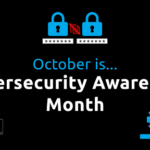
There are lots of different types of malware out there, including scripts, active web content, and executable code, according to Comdo Threat Research Labs. On top of that, the malware landscape is dynamic and ever-evolving, with new variants emerging every day.
Still, many malicious programs fall into certain categories. Just like knowing about common types of hackers can help as you take steps to proactively protect your business from cybersecurity threats, understanding the typical types of malware you’re likely to encounter can give you a leg up in safeguarding your data.
This isn’t an exhaustive list, but here’s what you should know about five common types of malware that might attack your IT network.
1. Ransomware: This has become one of the leading IT security threats worldwide in the past few years. Cybercriminals use ransomware to encrypt their victim’s files and then demand payment in exchange for the decryption key.
It’s had a major impact on organizations across all industries around the globe: In 2017, for example, the WannaCry ransomware incident resulted in tens of thousands of infections in more than 150 countries, according to the United States Computer Emergency Readiness Team. Your best bet to defend against this type of malware is keeping your anti-virus solution updated, implementing a next-gen firewall, and backing up your data.
2. Trojans: This variety of malware gets its name from the wooden horse the Greeks used to sneak their soldiers into the city of Troy in Greek mythology. Just like the Greeks’ horse, Trojans look like legitimate programs (e.g., free anti-virus programs), but they’re smuggling malicious code, according to the CSO article “8 types of malware and how to recognize them.”
Users have to execute a Trojan for it to complete its malicious mission, and this type of malware typically comes in attached to an email or via an infected web page. Although anti-virus programs and firewalls can help, Trojans are difficult to defend against since literally millions of new types emerge every month, CSO states.
3. Viruses: A computer virus is a contagious bit of code that can infect a device and then spread from file to file (and to other devices when files are shared), according to the TechAdvisory.org article “4 different types of malware: explained.”
The best way to defend against these is an up-to-date anti-virus solution. Users can also avoid getting infected by not clicking on any suspicious executable (“exe”) files they receive.
4. Worms: Like viruses, worms infect devices and then spread across systems and networks, TechAdvisory.org states. However, they don’t need a user to execute anything to infest because they can self-replicate. To avoid getting worms, ensure your anti-virus and firewall are up-to-date.
5. Spyware: Rather than cybercriminals looking to demand a ransom or get their hands on sensitive data, spyware is often installed by people who want to monitor the activities of someone they know, according to CSO. However, hackers still might use it in certain cases to log keystrokes and get passwords. To stop it, you’ll need to find the executable and stop it.
Ultimately, the malware landscape changes rapidly, and it’s hard for anyone to keep up with all the different types of malicious programs that continue to pop up. Taking proactive steps to defend your IT infrastructure against malware and hackers is crucial for any business these days.
If you’d like to learn more about how to effectively defend your organization against cybersecurity threats, contact our team of IT security experts today by calling 877-599-3999 or emailing sales@stratospherenetworks.com.


